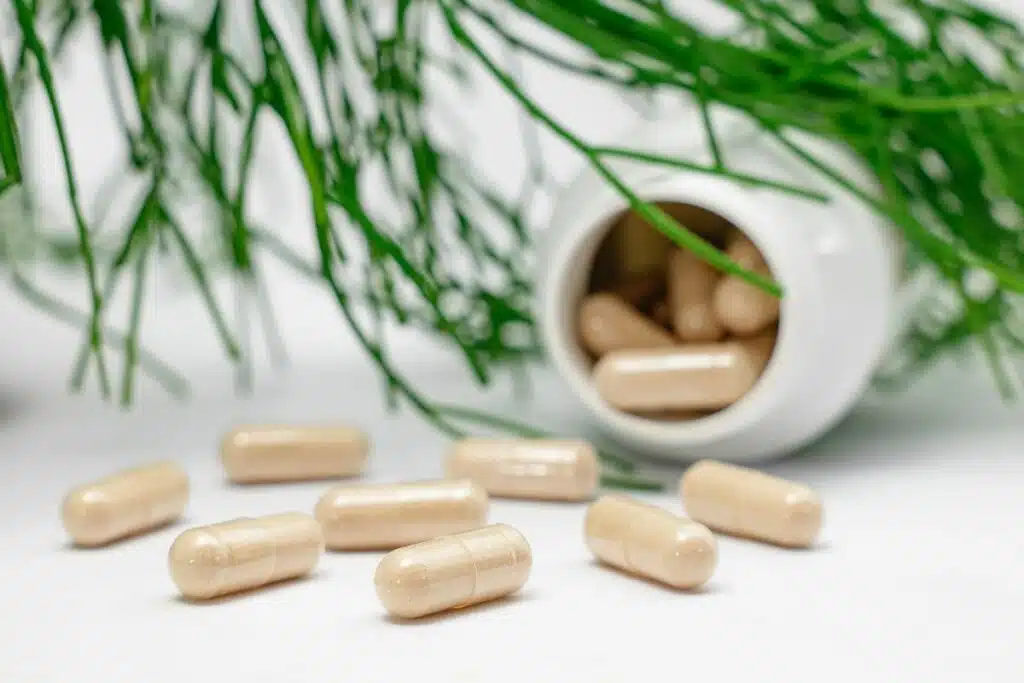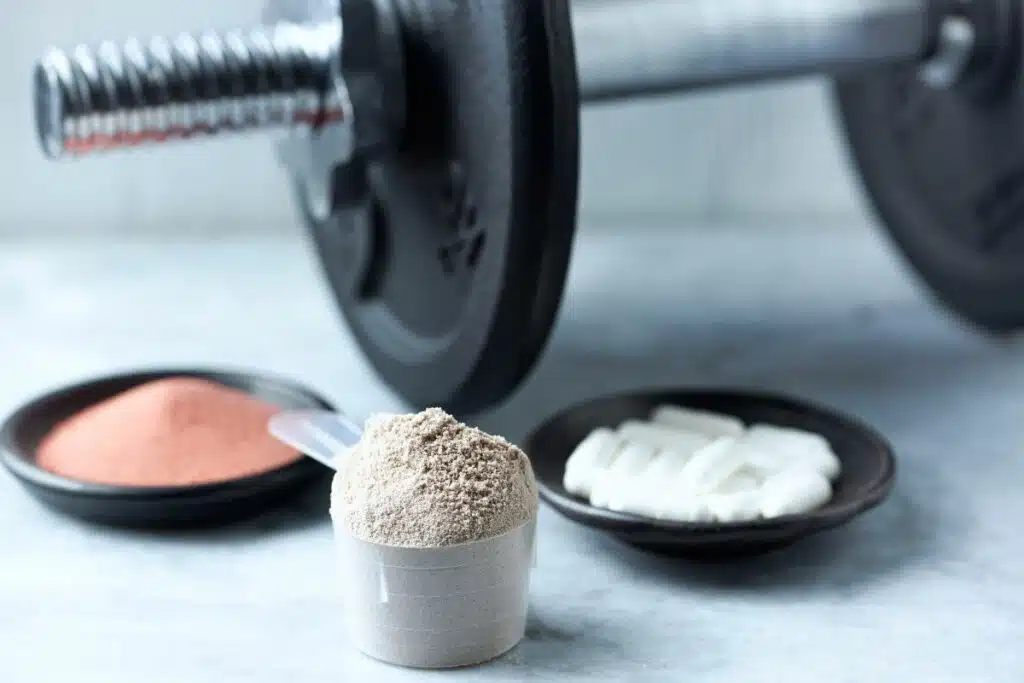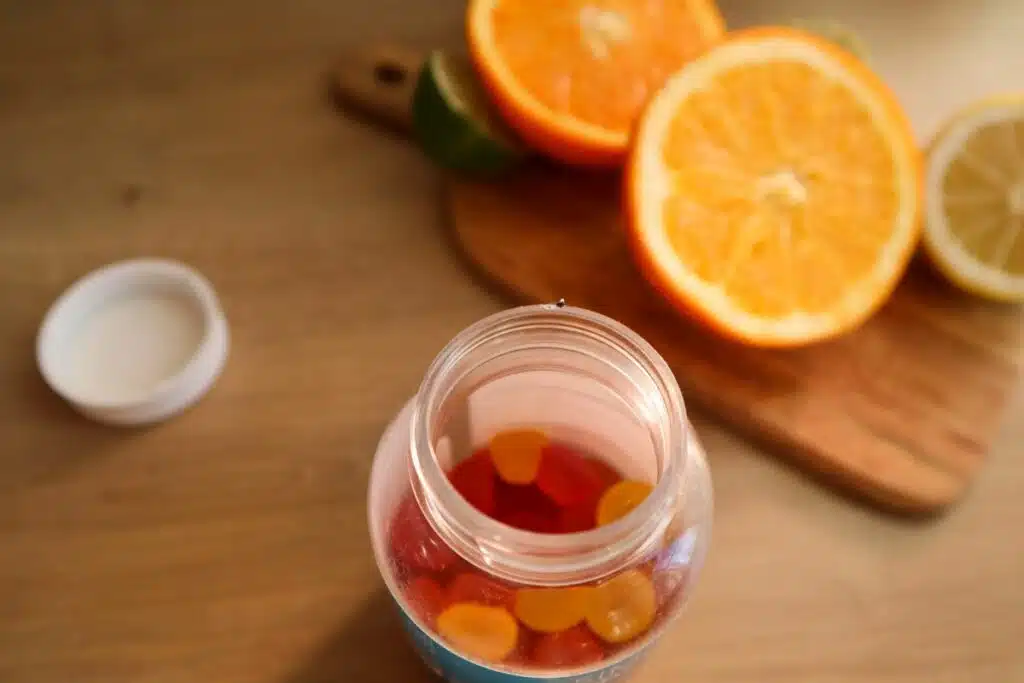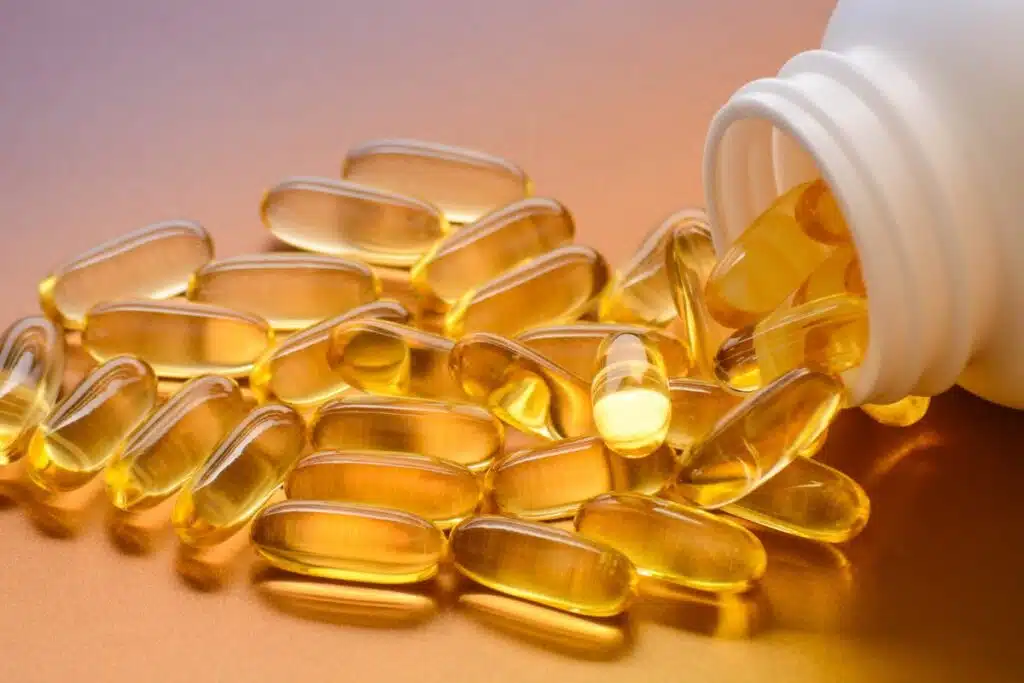In today’s fast-paced world, the demand for cognitive health support across all age groups is rising. From young professionals juggling multiple tasks to older adults preserving memory and mental agility, the need for enhanced focus, clarity, and energy is universal. Nutritionists and health experts advocate for a balanced diet and holistic lifestyle as essential for brain well-being. However, evolving research reveals the crucial role of focus supplements and brain vitamins in enhancing cognitive function and supporting overall brain health, leading to increased demand in the supplements manufacturing sector.


Do Focus Supplements Actually Work?
The effectiveness of focus supplements can vary from person to person and depends on the ingredients used. Many focus vitamins and private label supplements contain scientifically proven ingredients that support cognitive function, such as Ginkgo Biloba, which some studies have shown to improve memory and attention. However, individual responses to these ingredients can vary, and what works well for one person may not work as well for another. It is always advisable to choose a supplement with transparent labeling, from a reputable brand, and to consult a healthcare professional before starting any new supplement routine.
Who Can Benefit From Focus Supplements?
Focus supplements, also known as nootropics or cognitive enhancers, aim to boost memory, creativity, motivation, and other cognitive functions. While the effectiveness of many of these supplements can differ, certain people may find them beneficial:
Students: Those in intense academic environments may seek focus vitamins to enhance memory retention, concentration, and cognitive endurance, especially during demanding periods like exams.
Professionals: In high-stress jobs or careers requiring sustained attention, professionals may turn to focus supplements to boost productivity, maintain mental clarity, or manage work-related stress.
Elderly Individuals: As cognitive decline can be a natural part of aging, some older adults look to supplements as a way to enhance memory, focus, and overall cognitive function.
Athletes: Some Athletes use focus and workout supplements to improve concentration, motivation, and mental stamina, crucial for both training and competition.
Individuals with ADHD or Attention Disorders: While prescription medications are standard for these conditions, some individuals might explore brain supplements as an alternative to manage symptoms. However, it’s essential to consult with a medical professional before doing so.
People Recovering from Brain Injuries: Traumatic brain injuries or conditions that impact cognitive functions might lead some to use focus supplements as part of their recovery or management strategy.


What Vitamin Deficiency Causes Lack of Focus?
Nutrient deficiencies, particularly in vitamin D, vitamin B-12, can be linked to brain fog and lack of focus. Low levels of vitamin D are associated with depression, which can manifest as cognitive challenges. Vitamin B-12 deficiency can affect brain function, impairing memory and thought processes. Addressing these deficiencies through diet or supplementation is essential for optimal brain health.
10 Best Focus Supplements & Vitamins
1. B12: The Essential Vitamin for Brain and Body Health
Vitamin B12 is crucial for producing methionine, a molecule essential for brain development and many other bodily functions. A deficiency in this vitamin can lead to various neurological issues, including numbness, coordination problems, and slowed nerve responses. Additionally, low B12 levels in older adults can result in brain shrinkage. According to an article by Uwe Gröber, Klaus Kisters, and Joachim Schmidt in the National Library of Medicine, cognitive issues stemming from a B12 deficiency are more common than generally assumed, particularly among elderly individuals living alone and not maintaining a proper diet. This deficiency is particularly concerning for brain function, as it not only affects cognitive abilities but also focus and attention. Ensuring adequate B12 intake is thus critical, especially for older adults, to prevent cognitive decline, loss of focus, and other related health issues.
2. Ginkgo Biloba: Enhancing Blood Flow and Boosting Cognitive Performance
Ginkgo biloba seeds are treasured for their dual roles in Asian culinary traditions and their potent medicinal properties, especially within the traditional Chinese medicine. Historically, the plant has been a solution for asthma and bronchitis. Moreover, its unique attributes, which include countering detrimental overactivity in brain cells and enhancing cerebral blood flow, make it a significant contender in the battle against diseases like Alzheimer’s, which predominantly affects the elderly’s memory functions.
A study by the University of Northumbria in England showcased the attention-enhancing properties of Ginkgo Biloba, with participants demonstrating improved cognitive performance for up to six hours after consuming the extract. This concentration-boosting effect is primarily attributed to the plant’s capability to optimize blood circulation in the brain. Efficient blood flow is paramount for brain function, as it carries essential nutrients and oxygen to nerve cells, ensuring optimal transmission of stimuli and information. Thus, compromised cerebral blood circulation can result in diminished concentration and overall mental performance.


3. Ashwagandha: An Ayurvedic Herb with Cognitive Enhancing Properties
Ashwagandha, a shrub utilized in ancient Ayurvedic medicine, is known for its potential to boost memory and alleviate stress. Recent studies indicate that it might also enhance cognitive abilities. A thoroughly conducted study from 2017, published in the Journal of Dietary Supplements, involved 50 adults with mild cognitive impairment. Participants were administered either 300 milligrams of ashwagandha root extract twice daily or a placebo over eight weeks. Remarkably, those who received ashwagandha showed substantial gains in memory, executive function, attention, and information-processing speed compared to the placebo group. Therefore, taking ashwagandha as a supplement could be beneficial for improving cognitive functions.
4. Creatine: Unlocking the Potential for Enhanced Cognitive Function
While the majority of creatine supplementation research has been centered around its effects on skeletal muscle, there is an emerging pool of studies examining its impacts on the brain. Initial studies have found that creatine supplementation can indeed elevate the levels of creatine in the human brain, which is promising, as it has been demonstrated to alleviate symptoms associated with concussions, mild traumatic brain injuries, and depression.
Creatine, a naturally occurring amino acid found in both muscle tissue and the brain, is vital for energy production, particularly during instances of heightened metabolic demand, such as sleep deprivation. Therefore, taking creatine supplements might not only help in doing better physically but could also help in improving mental health, thinking skills, and focus. This shows that creatine can be useful in many ways, helping both the body and mind.


5. L-Tyrosine: A Building Block for Better Brain Health
L-theanine, a naturally occurring amino acid in mushrooms and both green and black teas, has been associated with enhancements in mental performance and focus. A study published in Neuropharmacology found that participants who ingested 100 milligrams of L-theanine prior to a two-hour task made fewer mistakes compared to those who took a placebo. Although there isn’t a standard recommended dosage, most studies investigating its effects on cognitive function utilize daily doses ranging from 100 to 250 milligrams. A comprehensive review of research in 2016 highlighted the neuroprotective properties of L-theanine, which contribute to improved brain functionality. On its own, L-theanine can potentially enhance a person’s attention and reaction times. Interestingly, when combined with caffeine, it might help improve math skills and overall alertness.
6. Lion’s Mane Mushroom: The Natural Nootropic for Cognitive Support
Lion’s mane, a mushroom highly respected in the traditional medicine of China, Korea, and Japan, has been used for millennia and is now gaining global popularity as a “smart mushroom” for its potential to support brain function and neurological health. It is often consumed as a supplement to maximize its benefits. This increased attention worldwide is due to the mushroom’s remarkable ability to support cognitive functions. Research indicates that extracts of lion’s mane not only promote the growth of brain cells but also significantly improve memory in test animals. Specifically, a compound found in the mushroom, hericene A, enhances a brain pathway critical for memory. This suggests that hericene A from lion’s mane mushroom could be a potent memory enhancer and a promising alternative for improving memory and overall brain function.
7. Citicoline: A Key Compound for Brain Health and Cognitive Function
Citicoline is a great brain-boosting supplement, known for improving thinking skills, like focus, memory, and attention, and overall brain health. It works by giving energy to brain cells, improving memory and focus, and supporting overall thinking skills. A study ‘Citicoline Improves Human Vigilance and Visual Working Memory: The Role of Neuronal Activation and Oxidative Stress’ showed that citicoline greatly helped in improving attention, alertness, and memory, and reducing harmful stress, compared to a fake pill (placebo) in healthy people. Although some past studies found that fake pills can improve certain brain functions, this study did not see any improvement from the fake pill. The good effects of citicoline come from its ability to improve brain flexibility, fix damaged brain cells, control immune responses, and reduce harmful stress.


8. Omega-3s: Essential Fatty Acids for Brain Health
Omega-3s, beneficial fats found in foods like fish, play a crucial role in brain health, aiding in mood regulation and the prevention of brain diseases. To ensure adequate intake, omega-3s can also be consumed as a supplement. There are several types of omega-3s, including EPA, DHA, and DPA, each with its unique benefits. EPA, for instance, is particularly beneficial for mood, while DHA plays a significant role in preventing brain diseases such as Alzheimer’s, as highlighted by Simon C Dyall. Moreover, a systematic review titled ‘Effects of Omega-3 Polyunsaturated Fatty Acids on Brain Functions’ emphasizes that omega-3 consumption enhances learning, memory, cognitive health, and brain blood flow, making it a beneficial, well-tolerated, and low-risk therapy. Specifically, lonely individuals, seniors, and those with a low intake of omega-3 rich foods can particularly benefit from omega-3 supplements.
9. Vitamin D: The Sunshine Vitamin for Cognitive Well-being and Brain Health
Vitamin D is vital for early brain development, and a lack of it is linked to a range of conditions, including dementia, depression, autism, and schizophrenia. For those with a deficiency, vitamin D supplements can help bridge nutritional gaps, thereby promoting better brain health and cognitive function. A 2017 study published in Current Gerontology and Geriatrics Research indicates that vitamin D is instrumental in maintaining cognitive function as we age. The recommended daily intake for most adults is between 600 to 800 IU. However, prolonged supplementation of vitamin D can lead to unwanted side effects, such as elevated calcium levels in the blood, potentially leading to blocked blood vessels or kidney stones. Consequently, it is important to monitor your vitamin D levels and consult a healthcare professional to determine the appropriate supplementation dose for your needs.


10. Magnesium: The Essential Mineral for Brain Function and Mental Clarity
Magnesium is a vital nutrient necessary for the optimal functioning of our brain and nervous system, including our capacity to focus and maintain attention. A lack of magnesium can lead to a range of symptoms, such as irritability, restlessness, an inability to concentrate, and fatigue—symptoms that are commonly associated with Attention Deficit Hyperactivity Disorder (ADHD). Numerous studies have consistently revealed that children diagnosed with ADHD frequently have low magnesium levels, and that supplementing with magnesium can result in notable improvements in behavior, impulsivity, and hyperactivity. Hence, ensuring adequate magnesium intake is crucial for maintaining optimal brain and nervous system health.
Launch Your Focus Supplement Line with Wonnda
In today’s fast-paced world, mental clarity and sharp focus have never been more crucial. This increasing demand for cognitive enhancement supplements presents a golden opportunity for brands looking to launch their own line of focus supplements. Wonnda is here to facilitate that process seamlessly. As a digital platform that bridges the gap between brands and private label manufacturers or suppliers, Wonnda offers a comprehensive digital solution for sourcing and launching new product lines in the consumer goods industry.
Explore ideas for your new focus supplement brand, source high-quality ingredients, and expand your brand with private label supplements. Partner with Wonnda today and make your mark in the booming focus supplement market.
Ideas for Your New Focus Supplement Brand
Focus supplements come in various forms, each serving a different purpose:
Tablets: These are one of the most common forms of supplements. They can be coated or uncoated, and may contain binders to help hold the ingredients together.
Capsules: These are one of the most popular forms of supplements. They can be filled with a powdered or liquid form of the supplement, making them a versatile option.
Herbal Drops: Liquid herbal drops can be easily added to water, tea, or taken sublingually (under the tongue) for fast absorption.
Powder: This is a versatile option that can be added to milkshakes, turned into tea, or even sprinkled on food. Powders can be a good way to incorporate supplements into your daily routine without having to take a pill.
Softgels: These are soft capsules that are filled with a liquid or oil-based supplement. They are often used for supplements like fish oil or vitamin D that are better absorbed with fats.
Effervescent Tablets: These are tablets that dissolve in water to create a fizzy drink. This can be a fun and tasty way to take your supplements.
Gummies: These are similar to chewing candy but are usually more gelatinous and gummy in texture.
Liquid: Liquid supplements can be taken alone or mixed with a drink.